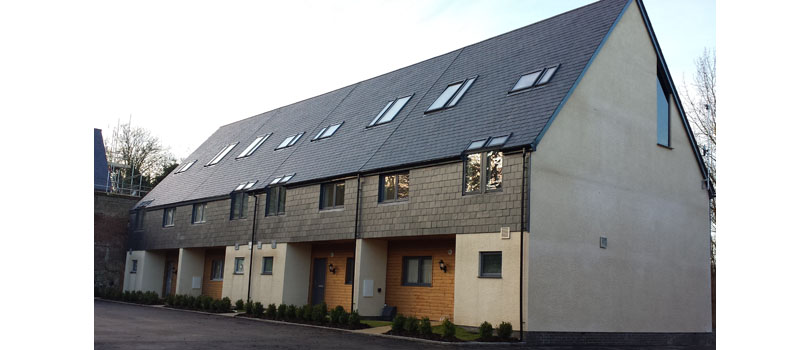
Fakro’s Andrew Cross explains how an understanding of market trends, design innovation and performance requirements will pay dividends for merchants looking to capitalise on the sales opportunities presented by the roof window market.
With the loft conversion sector showing every sign of continued growth and new build at last beginning to recover, opportunities for roof window sales are steadily improving. Projects requiring specific aspects of performance are increasing in number too and this is having a knock-on effect on designs, in much the same way as initiatives in Formula One drive innovation in the car industry.
With designers and home owners using windows more prominently — for example, in combinations — it is all good news for merchants. Keeping up-to-date with what’s available can make a considerable difference to success and as this can be difficult for counter staff, Fakro has been increasing its sales team to provide support in order to help branches capitalise on enquiries.
Despite the rate of change affecting roof windows, the vast majority sold are still centre pivot and this has tended to encourage what is essentially a commodity approach to procurement. There is, however, growing evidence that self-builders are driving demand for products that offer better performance — sometimes this is to provide something as specific as improved thermal efficiency, but in the main because they have researched product quality and functionality.
Major house builders too are designing more imaginatively and in such cases manufacturers with a limited range of traditional designs are unable to meet their needs. A good example of a housing project requiring bespoke features is St Andrew’s Park, a Charles Church development in West London, where specific planning requirements were imposed on roof window flashings. Furthermore, the timeframe to produce them was such that Fakro was the only manufacturer which could do so.
The merchant involved was unaffected in this case as the technicalities were resolved between the house builder and manufacturer. However, on a day-to-day basis such an enquiry is just as likely to come to the trade counter, so knowledge of and experience gained from such projects can put a branch in a position of considerable advantage.
Even with basic designs like the centre pivot, which many still think of as much the same from one manufacturer to another, the gap in performance and appearance is already considerable. Differences in quality can be affected by the timber type and its treatment, jointing technology, seals, vent, flashing, thermal efficiency and installation depth. They may not immediately be visible but become clear on closer inspection.
External appearance, which hasn’t traditionally been a factor of great concern to anyone other than planning officers, has also become a factor affecting roof window choice. If the roof is natural slate, the installed window looks far better if it sits low within the roof line. Demand for this was initially prompted by planners in conservation areas, requiring windows not just in conservation style but with a low profile to make the windows less obtrusive.
The principle is equally true with deeply profiled tiles like a Bold Roll for which the height can be increased to suit the tile, but Fakro lays claim to remaining the only manufacturer to offer — as standard — a choice of three installation depths.
Self-builds often place greater demands on performance as a result of roof design complexity, airtight construction, use of solar systems and roof windows in varying combinations. Such factors all place considerable pressure on window performance and the ability to provide clear proof of performance.
Indeed, the gap between products which offer little more than basic functionality and those moving in line with improving Building Regs and Standards such as Passivhaus is also reflected in visual style and functionality. Some older products no longer meet the mark in terms of appearance, thermal efficiency, manufacturing quality or design life.
Here again, the self-build sector provides a good indicator of changing attitudes and requirements with comments received at exhibitions in particular providing valuable insight and feedback.
A little knowledge can go a long way, particularly as the general level of awareness of roof window developments remains low amongst builders, amongst whom experience of designs beyond the centre pivot is often limited. This lack of knowledge is gradually changing as a consequence of the trust placed in them by home owners to make product recommendations.
Combining a high standard of performance in roof windows of contemporary style invariably prompts recommendation and if this is the case, the chances of a repeat sale for the merchant can only increase.
Andrew Cross is Marketing Manager at Fakro GB.









